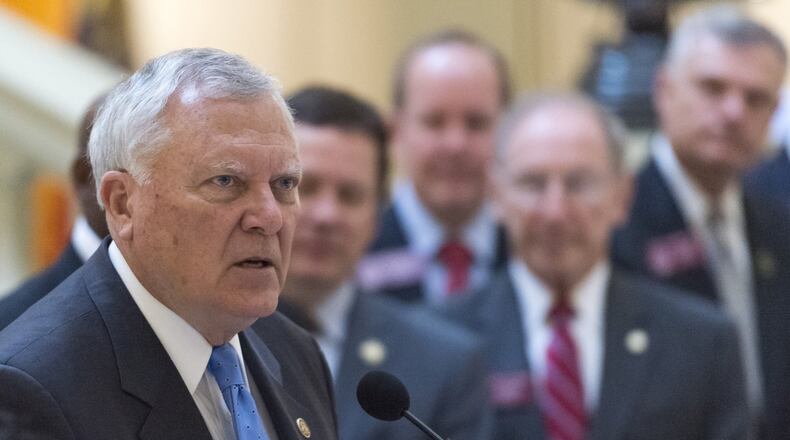Georgia took its first step toward possible takeover of the state’s lowest-performing schools on Thursday when a newly created advisory group met with the governor’s education board for the first time to begin looking for a turnaround leader.
The 11-member Education Turnaround Advisory Council is tasked with advising the Georgia Board of Education as it searches for someone to implement The First Priority Act.
The law, passed during this year’s legislative session, requires a nationwide search for a Chief Turnaround Officer. That officer, a newly created post, will target the state’s lowest-performing schools for intervention and help school districts devise and implement improvement plans, acting as both coach and judge: districts that fail to show gains could lose control of their schools.
The new law lacks the clout that a failed constitutional amendment last year would have bestowed upon Gov. Nathan Deal. His Opportunity School District proposal faced withering criticism from teachers, school boards, the PTA, the NAACP and other groups and was handily defeated at the polls. That statewide district would have allowed a governor’s appointee to take over schools and run them directly or hand them over to private managers, including those seeking a profit.
This new law could still result in the loss of local control over schools, which was a major criticism of the constitutional amendment. But there is no state district to absorb schools and the state would not run them directly. Instead, they could be converted to charter schools or handed to private operators. Wary of one of the loudest rallying cries against the constitutional amendment -- that it was a giveaway to corporations -- lawmakers stipulated that school operators under the new law must be non-profits. They were also careful to give a voice to the adversaries of the constitutional amendment, who are well-represented on the new turnaround council.
Seven members are either leaders or appointees of advocacy groups for parents, teachers, school administrators and school boards. Four are political appointees of the Georgia General Assembly leadership, including Atlanta Public Schools Superintendent Meria Carstarphen, who has handed some of her own schools to charter operators. (She sent district employee Erica Long in her place Thursday.) All groups on the council sent a representative except the Georgia PTA, whose president, Tyler Barr, was absent.
State Superintendent Richard Woods is not on the advisory council but serves as an independent advisor. He lost a political battle to have the turnaround chief reporting to him.
The state education board, appointed by the governor, is ultimately in charge. The first decision: whom to hire as Chief Turnaround Officer. The new position is technically within Woods’ Department of Education, but reports directly to the school board.
School board chairman Mike Royal set no deadline for the hire, saying that finding the right person trumps timing.
The council talked about changes to the testing system to give teachers feedback sooner. And there was a brief discussion about the qualifications the future chief should have, with some arguing for an advanced degree and others for a strong track record in public schools.
“If you don’t have somebody with experience turning around public schools, then the buy-in is going to be very, very low,” said Jimmy Stokes, executive director of the Georgia Association of Educational Leaders.
The law has a short list of resume requirements because lawmakers didn’t want to restrict the search. It requires “extensive” school turnaround experience but doesn’t specify public schools. It also requires a minimum five years as principal or higher level administrator, with related skills. It allows the education board to set other qualifications.
The advisory council recommended that the National Association of State Boards of Education conduct the search, and named Stokes as council chairman.
About the Author





